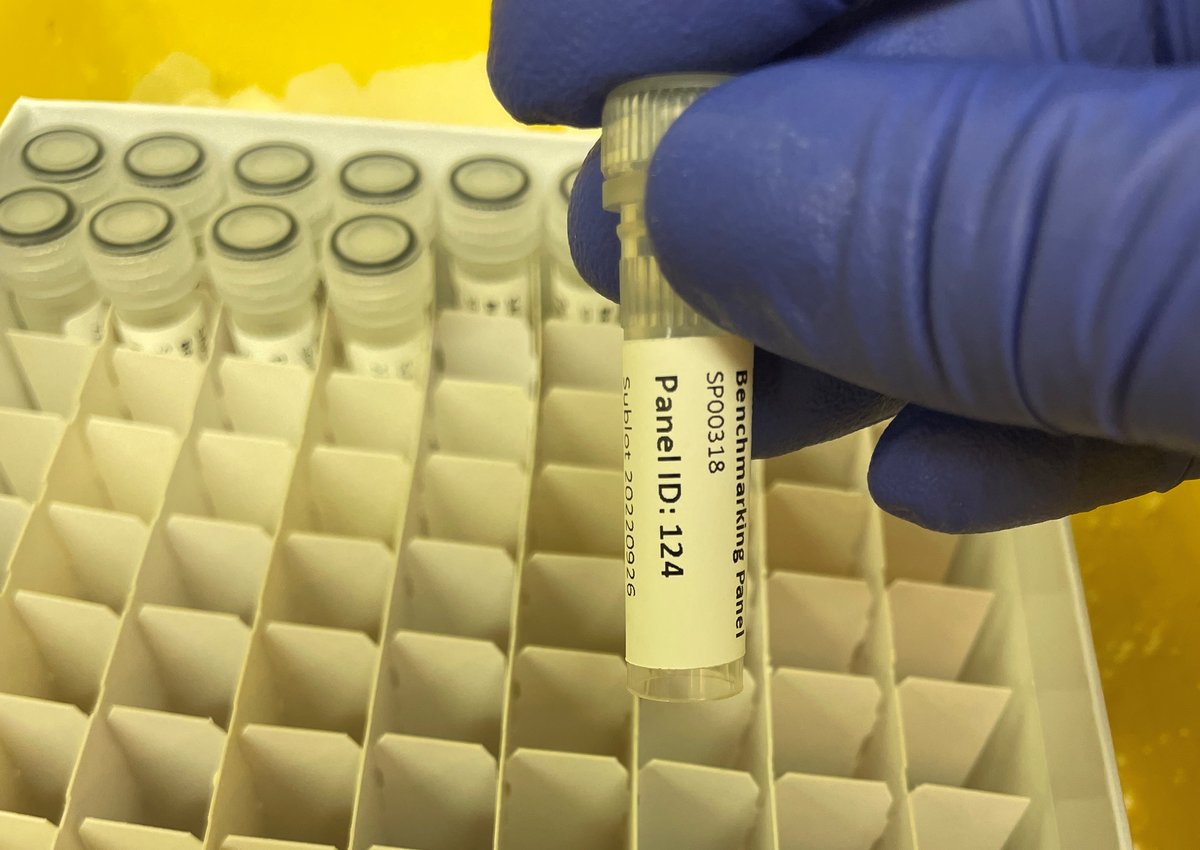
Supporting WHO Emergency Use Listing through independent evaluation of COVID-19 diagnostics
The COVID-19 Diagnostic Benchmarking Panel provides precise comparison and independent evaluation of the analytical performance of SARS-CoV-2 antigen rapid diagnostic tests (RDTs).
During the COVID-19 pandemic, PATH Diagnostics collaborated with multiple partners to develop an exportable COVID-19 Diagnostic Benchmarking Panel to enable hands-on independent evaluation of diagnostics for SARS-CoV-2. PATH is now collaborating with FIND and the World Health Organization (WHO) Prequalification (PQ) unit to enable the generation of independent data for SARS-CoV-2 antigen rapid diagnostic tests that are undergoing WHO Emergency Use Listing (EUL) assessment and for those already listed.
This work builds on the PATH-developed benchmarking panel and findings from studies like the PATH-led prospective study in Brazil that improved understanding of COVID-19 diagnostics. The final panel configuration and composition was determined in partnership with WHO PQ and addresses the gaps often observed in product dossiers submitted for EUL assessment. Appropriate samples were sourced through the Washington COVID-19 Biorepository and other public and private partners. PATH led assembly, labeling, and blinding of panel members, as well as implementation of quality control mechanisms to ensure high quality.
The panel included approximately 60 members representing a range of concentrations of SARS-CoV-2 cultured virus, pooled clinical specimens, and recombinant nucleocapsid antigen (N antigen). Clinical specimens were collected during peak variant transmissions to represent SARS-CoV-2 from 2020 as well as variants of concern (Delta and Omicron BA.1, BA.2, and BA.5). A subset of panel members will be used to evaluate lot-to-lot variations.
This panel will be used by trained operators in independent laboratories. The evaluations are anticipated to begin in the first quarter of 2023. Eligible manufacturers will be contacted by WHO in advance and asked to ship tests directly to a specified laboratory, where the testing will be conducted following a standardized protocol developed by PATH. The protocol will be shared in advance with manufacturers. Test results will be shared by the evaluating laboratory with PATH for analysis of analytical sensitivity, the impact of variants on analytical sensitivity, and lot-to-lot variation.
Upon completion of data analysis, the results will be reported back to the RDT manufacturers as well as WHO, FIND, and the independent laboratories. A summary of the evaluation results will be published on the WHO EUL web page and included in the WHO Public Report of EUL listed and rejected products. In addition, aggregated data for comparison across tests may be published on path.org. In collaboration with WHO and FIND, PATH may use the results and reports to pursue future publication opportunities.
Additional information, including possible publication of evaluation results, will be provided as available.
Please see the resources linked above and/or email dxinfo@path.org if you are interested in connecting or learning more.
This project was conceptualized, designed, and implemented by PATH with funding from The Foundation for Innovative New Diagnostics of Geneva, Switzerland (FIND) and in key partnership with the WHO PQ In Vitro Diagnostic team.


